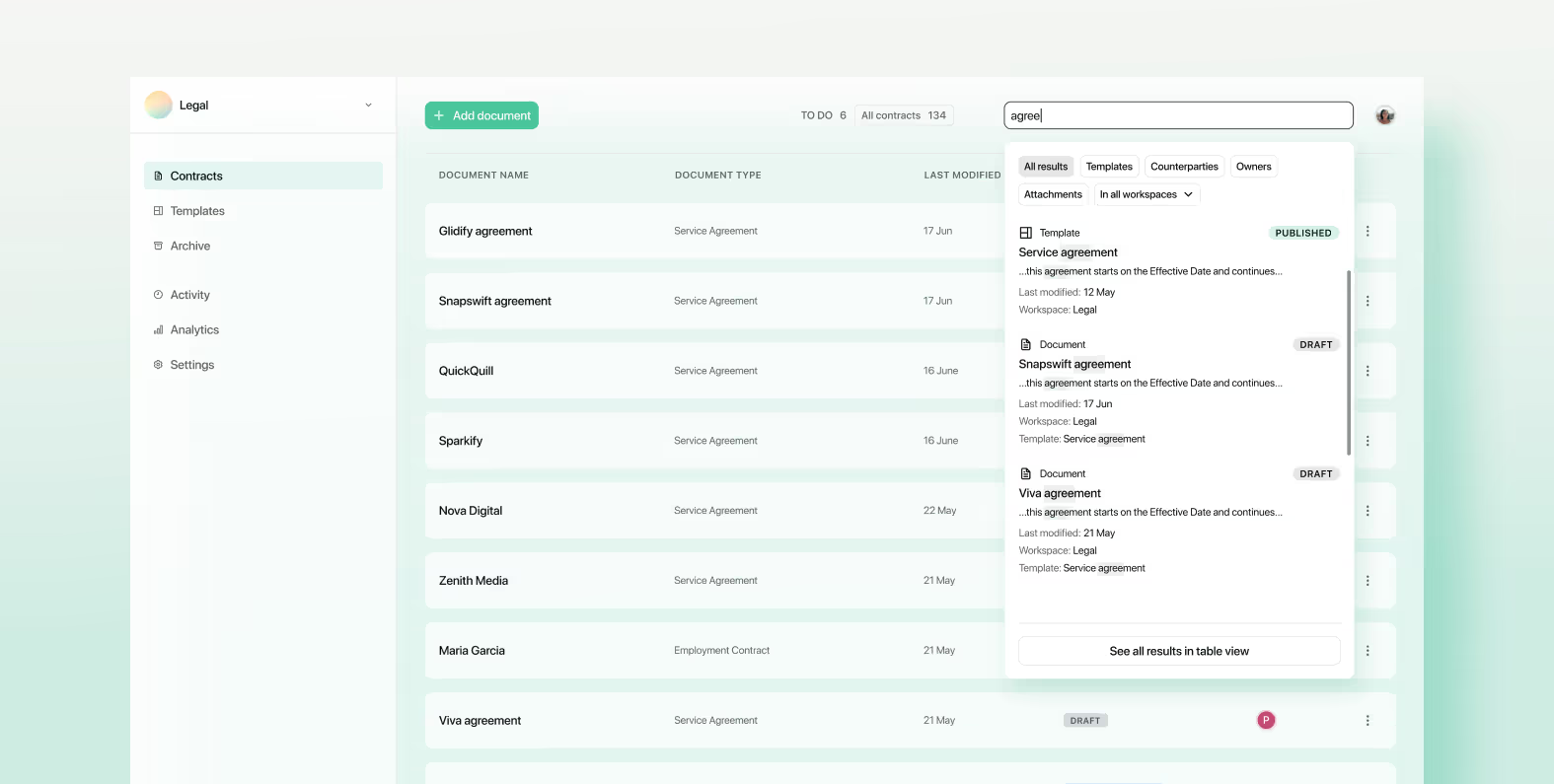Solutions
Customer Support
Resources
Renting out commercial or residential properties in Pennsylvania? Use this free Pennsylvania lease agreement template as a starting point for your relationship.




A Pennsylvania lease agreement is a contract between a landlord and a tenant that outlines the terms and conditions for renting a property in the state of Pennsylvania. The legal document covers important details like the amount of rent, when and how to pay it, the duration of the lease, and rules for using the property.
It also covers responsibilities for maintenance and repairs, security deposits, and what happens if either party wants to end the lease early. This agreement helps ensure both the landlord and tenant understand their rights and duties, making the rental process clearer and fairer for everyone involved.
Most importantly, a Pennsylvania lease agreement is compliant with the various laws governing the leasing of properties in that state, which we'll cover in more detail now.
When creating aPennsylvania lease agreement template, it’s important to be aware of the state’s landlord-tenant laws. These laws are found in the Pennsylvania Landlord and Tenant Act of 1951, which outlines the legal requirements for rental agreements. Key provisions include:
Understanding these laws helps ensure that the lease agreement is legally enforceable and protects the rights of both parties.
.avif)
The purpose of a Pennsylvania lease agreement is to legally bind both the landlord and the tenant to the terms and conditions governing the rental of a property. More specifically, it serves several key functions:
In Pennsylvania, lease agreements are typically managed by landlords, property managers, or real estate agents. These individuals or entities are responsible for drafting and reviewing the tenancy agreement, to ensure the lease agreement template is properly filled out and compliant with state laws, and managing the collection of monthly rent payments and any associated fees.
They are also responsible for coordinating maintenance requests and ensuring that the property remains in good condition, and handling disputes, in order to address any conflicts between the landlord and tenant, and initiating eviction procedures if necessary.
Property managers and real estate agents often handle these tasks on behalf of landlords, particularly for larger rental properties or when the landlord does not live nearby.
When you think of lease agreements, residential rentals are probably the first thing that springs to mind. While these are the most common type of lease agreements in Pennsylvania, they're certainly not the only type used.
Commercial lease agreements are also common, and these are used for renting commercial properties like retail spaces, offices, and industrial facilities. Commercial leases are typically more complex, with negotiable terms tailored to the needs of the business. Types of commercial leases include:
Lease agreements will also vary in their length. For example, you'll often find month-to-month lease agreements, or short-term rental agreements in Pennsylvania. Month-to-month leases automatically renew at the end of each month unless either party gives notice to terminate, and they're popular for tenants who need short-term arrangements or are in transition period. Short-term rentals are more common for vacation properties, airbnb rentals or apartment leases.

While there are various lease agreements operating in Pennsylvania, each with different terms and conditions, most Pennsylvania lease agreements will cover the following things as standard:
A comprehensive Pennsylvania lease agreement template should include the following elements:

When drafting any kind of lease agreement, it's important to remember the end user and the level of knowledge they have about real estate laws and regulations. In most cases, the tenant won't be a real estate professional, or a legal expert, particularly if you're working with residential properties.
This means you should focus on keeping your agreements as accessible as possible by drafting a plain language contract that prioritizes the tenant's experience instead. Not only will this make the contracting process more pleasant for both parties, but it will also make the terms more likely to be followed and enforced because they're better understood.
"The difficulty with lengthy, complex contracts is that they often go unimplemented because business people simply do not understand them" – Marie Potel-Saville, CEO of Amurabi
Our next piece of advice is to make a conscious effort to keep up with any developments in Pennsylvania's landlord and tenant legislation. This will help you to protect yourself from a legal misstep and reduce the risk of you having to enter into a costly legal dispute in the future. As a landlord or real estate professional, you have the responsibility of knowing these laws and updating contract templates to ensure compliance.
Fortunately, the process of updating these templates at scale is made a lot easier by automated contract templates and contract management software. Just ask Placemakr who consolidated 12 templates into just one with the help of Juro.
{{davis-placemakr-long-testimonial}}
The amount of work involved in managing a lease agreement will vary depending on the number of properties you lease. For a landlord operating independently with just a handful of properties, manual workflows will work just fine. But if you're a successful property management or real estate agency that works across these transactions day-to-day, you'll need a better solution as time passes.
More specifically, you'll benefit from a solution that enables you to perform certain actions at scale, whether that's signing 100 contracts in one go, or automating how they're shared for approval, and when. In these instances, you'll benefit from real estate contract management software like Juro that offers bulk actions, and the ability to automate repetitive admin work.
As a landlord or letting agency, it's important to remember that your objectives are actually aligned with those of a tenant. They want somewhere to live or operate their business, and you want a property to be occupied for a healthy fee. This is something you should keep front of mind during negotiations, and even when drafting this type of contract.
If a clause doesn't afford you much protection or add value, but it scares the prospective tenant from signing, it's probably worth either cutting it altogether or softening it at least.
According to The Most Negotiated Terms 2020 report, the terms most frequently negotiated are rarely the most important ones. It's worth speaking to a lawyer to see how you can reduce friction while still protecting your interests.
Juro’s contract management software offers a range of features designed to simplify and streamline the management of Pennsylvania lease agreements, along with other real estate contracts. Here's how:

By leveraging Juro’s contract management software, landlords and property managers can enhance their efficiency, reduce risks, and ensure compliance with Pennsylvania lease agreement requirements.
Juro’s AI-native contract automation platform empowers all teams to create, agree, execute and manage contracts up to 10x faster than traditional tools. To find out more, hit the button below to book your personalized demo.
If your property portfolio extends beyond Pennsylvania, you may benefit from these other free lease agreement templates, too:
Juro is the #1-rated contract platform globally for speed of implementation.


Juro embeds contracting in the tools business teams use every day, so they can agree and manage contracts end-to-end - while legal stays in control.
Book your demo